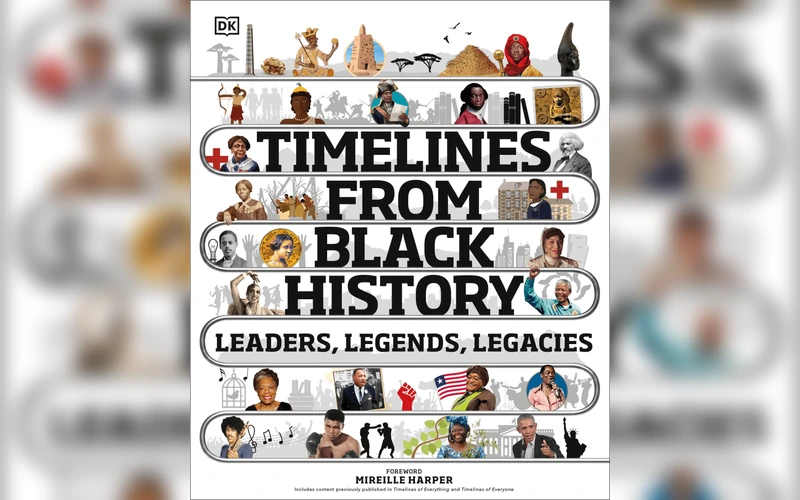Black history is an integral part of American history, yet it often remains underrepresented or omitted in educational narratives. Many people grow up unaware of the significant milestones that have shaped our history.
Now is the perfect time to learn and share these stories with our children. By doing so, we can help break the cycle of erasing Black history and encourage a natural curiosity in young minds.
Below are a few interesting facts from the book “Timelines from Black History: Leaders, Legends, Legacies.” This list is a starting point, but there is much more to explore. Continue your journey of discovery during Black History Month and throughout the year by engaging with more books and films on the subject.
- Rebecca Lee Crumpler (1831–1895) was the first Black woman in the United States to become a doctor. She opened a medical clinic in Boston, where she focused on caring for women and children living in poverty, often without charging for her services.
- Over 178,000 Black soldiers served in 175 regiments during the U.S. Civil War, comprising 10% of the Union Army and playing a crucial role in its victory.
- Despite being barred from official enlistment, many Black women served as scouts, nurses, and spies during the Civil War.
- Mansa Musa (1280–1337), a legendary African ruler, led the Mali Empire during its pinnacle of power and creativity. He controlled the gold market and is often regarded as the wealthiest person in history.
- In 1955, Claudette Colvin, a teenager, was arrested for refusing to relinquish her bus seat to a white woman. Although considered too young by some civil rights leaders to represent the movement, her act inspired Rosa Parks to take similar action later that year, igniting a major civil rights campaign.
- Annie Turnbo Malone (1869–1957) became one of the first Black millionaires by founding the Poro Company, which sold popular hair and beauty products to the Black community. She inspired Sarah Breedlove, later known as Madam C.J. Walker, to establish her own successful beauty empire.
- Maya Angelou (1928–2014), a celebrated writer and poet, broke barriers in 1944 as the first female Black cable car conductor in San Francisco.
- Civil rights activist Septima Poinsette Clark (1898–1987) was instrumental in founding nearly 1,000 citizenship schools, which played a significant role in enabling Black citizens to register to vote.
- Althea Gibson (1927–2003), often referred to as a “forgotten pioneer,” became the first Black tennis player to win a Grand Slam title in 1956 and secured 11 Grand Slam victories during her career.
- Lewis Howard Latimer (1848–1928) invented and patented the carbon filament, allowing lightbulbs to last longer than those using Thomas Edison’s paper filament. Latimer later worked for the Edison Electric Light Company.
- Innovations such as the ironing board by Sarah Boone, the traffic light system by Garrett Morgan, and the home security system by Marie Van Brittan Brown were all contributions from Black inventors.























